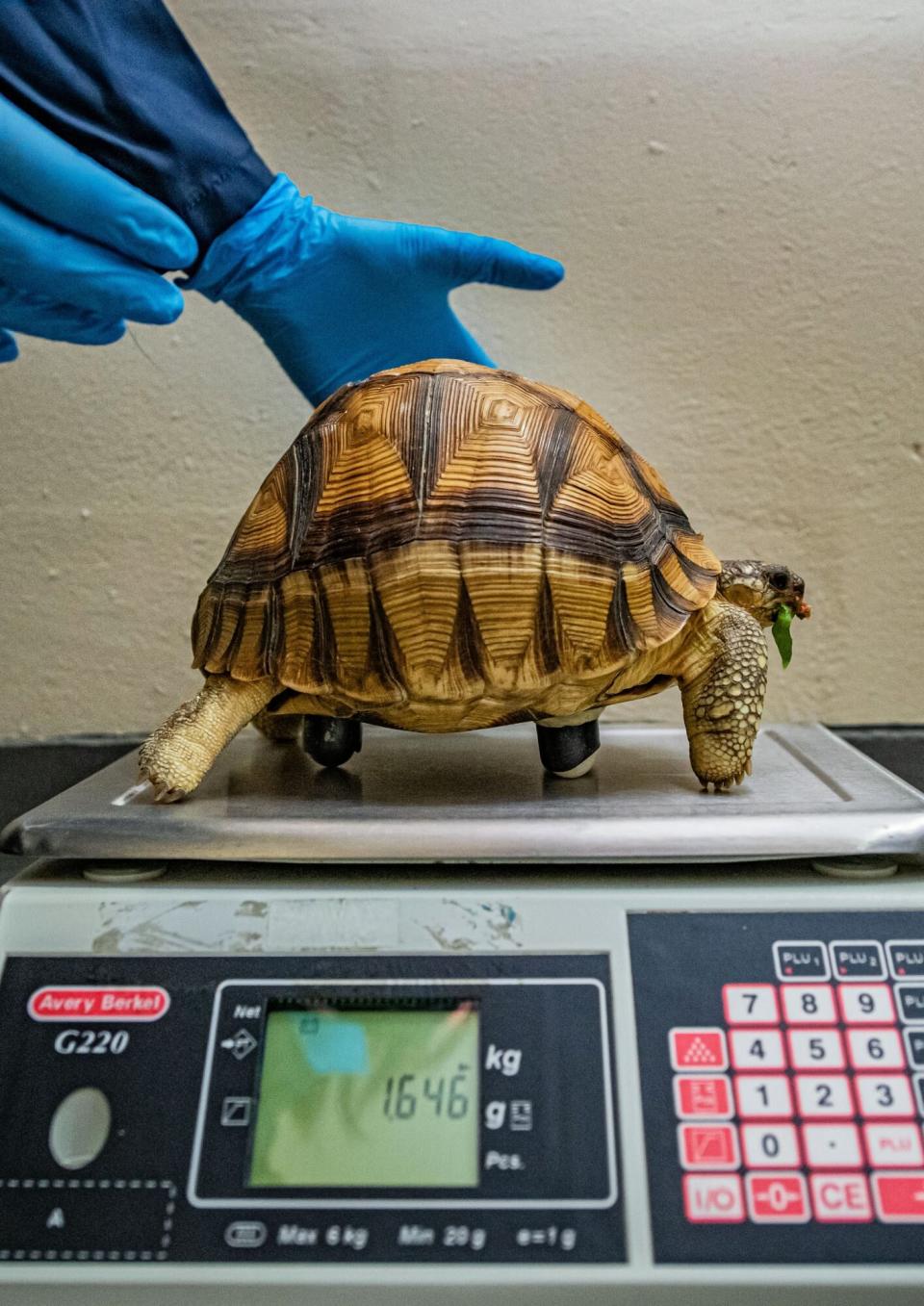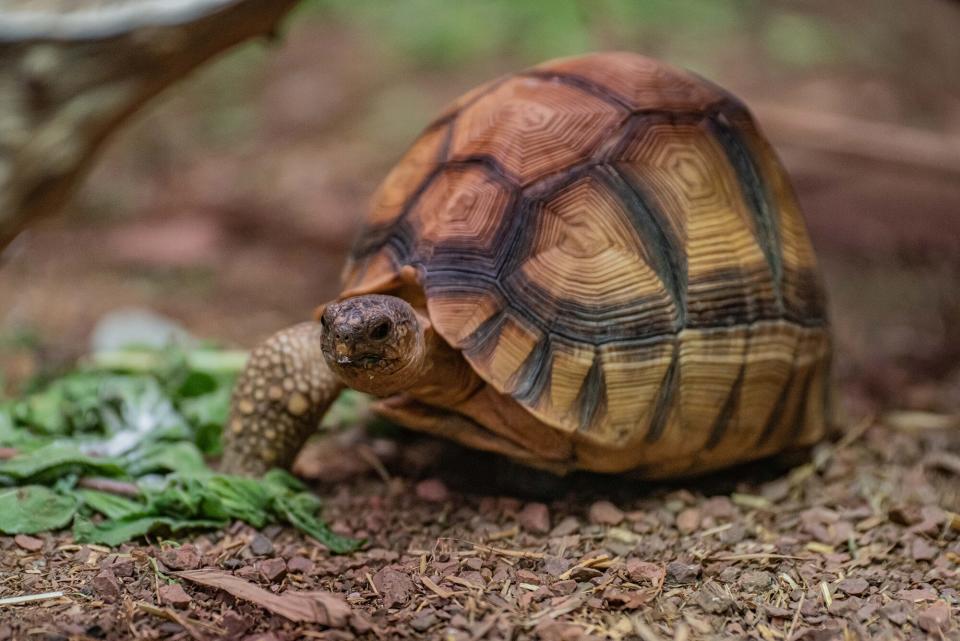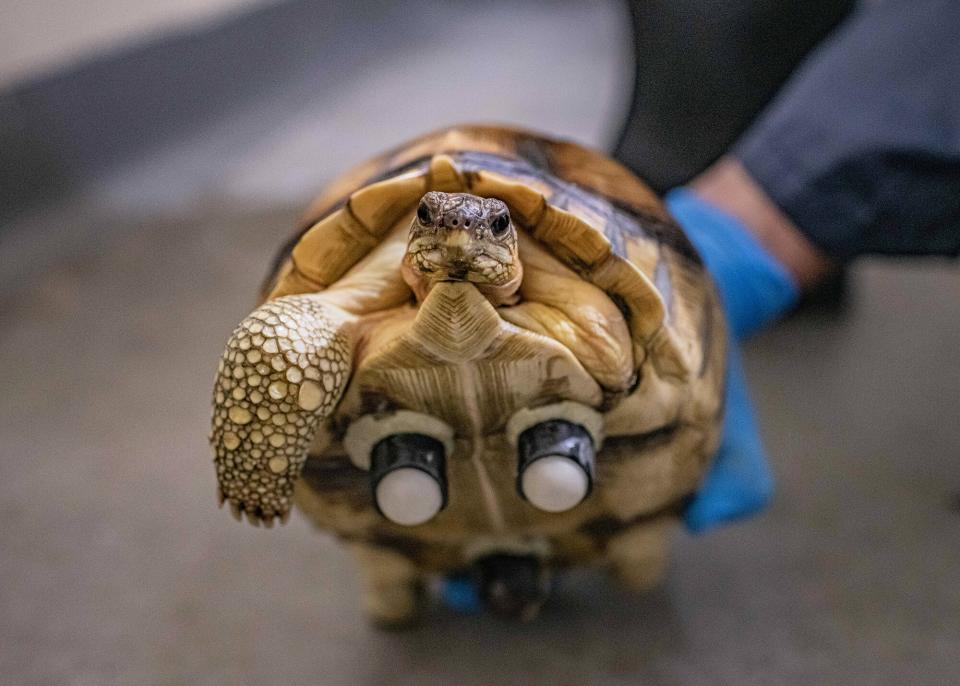'Incredibly Special' Three-Legged Tortoise Seized from Smugglers Finds Home at English Zoo

A three-legged tortoise from "the world's rarest" species has settled into his new life at the Chester Zoo in England after rescuers saved him from a smuggler in Hong Kong.
According to a release from the U.K. zoo, customs officials seized the ploughshare tortoise, named Hope, from his trafficker in 2019 after they found the trader traveling from the Comoro Islands off the coast of East Africa with a suitcase hiding 57 live and endangered tortoises. The trafficker later served a two-year jail sentence after being convicted under Hong Kong's animal protection laws.
After his rescue, Hope was transported to Kadoorie Farm and Botanic Garden Wild Animal Rescue Centre in Hong Kong to receive proper care from conservationists. There, veterinarians discovered Hope was missing a front leg and claws on a hind leg.

Courtesy Chester Zoo
RELATED: Zoo Knoxville Announces the Birth of Endangered African Lion Cub
To help him get around and achieve better balance, the experts at the Hong Kong facility provided Hope with three support rollers under his lower shell. The tortoise's former caretakers also modified the wheels to increase their function before sending the animal to the Chester Zoo.

Courtesy Chester Zoo
As he embarks on his new life in the U.K., Hope is now part of a European conservation-breeding program created to battle the extinction of his species.
Dr. Gerardo Garcia, the curator of lower vertebrates and invertebrates at the Chester Zoo, said in a statement that Hope " is an incredibly special tortoise, for many reasons."

Courtesy Chester Zoo
RELATED: Homing Pigeon Accidentally Travels from England to Alabama and Ends Up at Animal Shelter
"Firstly, ploughshare tortoises are exceptionally rare. It's not just the world's most threatened species of tortoise, it's one of the most threatened animals on the planet, full stop," he explained. "Fewer than 300 now remain in the wild, mostly due to their overexploitation by illegal wildlife traders — leaving them functionally extinct in their home of Madagascar."
He continued, "In addition Hope has a remarkable life story, having been rescued from smugglers, discovered to have a missing leg and then having a prosthetic mobility support specially fitted to help him get around."
"It works wonderfully well — he moves even quicker than his three neighbors," Garcia added. "He's settling in nicely to his new home and hopefully, in several years' time once he's more developed, he'll go on to produce offspring and contribute to the survival of the species thanks to the vital insurance population in conservation zoos."
Never miss a story — sign up for PEOPLE's free daily newsletter to stay up-to-date on the best of what PEOPLE has to offer, from juicy celebrity news to compelling human interest stories.
As part of vital conservation breeding programs, only 63 ploughshare tortoises are allowed to live legally outside of Madagascar, including at the Chester Zoo, which currently houses four of the creatures.
RELATED: Three 'Lovely' Ducklings Hatch from Eggs Bought at a U.K. Supermarket
Due to their distinctive gold and black shells and rarity, the tortoises are highly-prized in the black market trade.
Chester Zoo's director of animals and plants, Mike Jordan, shared in a statement, "This is a species that's sadly under huge pressure for its survival and there's a very real possibility that this species could be lost forever."
"That's why Hope is such an important addition to the zoo," he affirmed. "We refuse to sit back and see this incredible species disappear and so our aim now is to maintain an ark population, by coming together with some of the world's other leading conservation zoos to breed a genetically viable safety net population and prevent its extinction."

